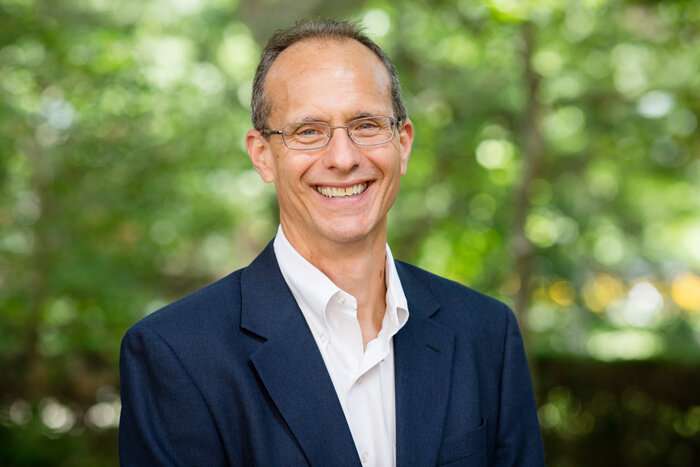Does lack of paid sick time make US susceptible to global health crisis?

Robert Bruno is a professor of labor and employment relations at the Urbana campus of the University of Illinois and the director of the Labor Education Program in Chicago. Bruno, an expert in labor history and politics, spoke with News Bureau business and law editor Phil Ciciora about the lack of paid sick leave in the U.S.
Does the lack of paid sick time at the federal level make the U.S. uniquely vulnerable to a global health threat like COVID-19?
Without question, it's all part of the larger problem of tying health care to employment. By not having a federal policy mandating paid sick leave, the government shortsightedly places everyone at greater risk by forcing low- and moderate-income workers to choose between a day's pay and medical care.
If a worker doesn't have access to quality health care, they have to take into consideration the cost variables of going to the doctor, putting their job at risk and losing income for a day by calling off sick. It's a disincentive for workers to take precautions, to take proactive measures.
So yes, we've exposed more of our citizens to this epidemic because we don't properly balance the health and welfare of our people with economic security. It's truly baffling that we remain so behind other countries on this issue.
And frankly, it's really at the federal level because an increasing number of states and big cities have adopted some form of paid leave, whether it's paid parental leave or earned sick time. Chicago is one of those cities but Illinois is not yet one of those states. Hopefully that changes soon.
What happens when states and municipalities implement paid sick time?
Even when some amount of paid time off is provided to workers, the vast majority of workers don't use it. The American worker typically doesn't take all of their vacation time, and they don't take advantage of earned sick leave either to take care of family for medical and other health care-related reasons. That's just the culture of work in the U.S. – but that doesn't mean it's right.
Where leave is available, it actually reduces employee absenteeism over time because workers tend to take care of a health issue right away. As a result, minor illnesses don't turn into something major that incapacitates them for a longer period of time.
To be fair, we do have the Family and Medical Leave Act, but that is unpaid time away from your job. It's certainly better than nothing, but it isn't used anywhere near as much as it could be—most likely because people can't afford to take unpaid time off. But when it's used, most often in unionized workplaces, the effects are positive.
What this all points to is a need for a real cultural shift so that workers understand that they need to take time away from work when it's necessary. By doing so, in the long run, they will be healthier, happier, more productive and efficient. And employers need to realize that it's in their own best interests, too. We know that paid parental leave, for example, is strongly associated with a significant number of health benefits for the worker and their family, and it's not viewed as burdensome to business. Most employers don't cite the absence of workers who are using either parental leave or sick time as a drag on production, efficiency or profits. Many employers don't report any significant change whatsoever to their ability to get the work done when workers take leave.
How much of this issue is connected to income inequality?
When almost half of all workers can't come up with $400 in emergency cash, income inequality certainly is a major component of it. If the choice is to take unpaid sick leave and not put food on the table, most people are going to work. And if your earnings have to be spread across additional dependents, it's very difficult to bypass those earnings. When you're faced with those kinds of choices, particularly if you're the head of a household, it's a whole lot easier to simply rationalize it away and say, "What are the odds that I'm going to get sick?"
So it's absolutely an economic issue. Millions of workers are only earning a sufficient amount to get by on a day-to-day basis, but they don't earn enough money to shelter them from a rainy day. They have a negative cash flow or they go into debt to weather the storm. But that's not sustainable over the long term. And the vast majority of workers aren't working under a collective bargaining agreement. They are at-will employees, which means they have no contractual guarantees and can be fired at a moment's notice. All of that adds up to a high-risk situation.
Thank goodness many large employers provide health insurance and paid sick leave. But clearly, for the vast majority of workers—people who are working hourly jobs somewhere at or slightly above the minimum wage—this situation is going to be a huge problem. It's a problem because they don't have any sort of political voice, and, therefore, our leaders can be indifferent to them.
But something like the coronavirus knows no class boundaries, so we all become more vulnerable because we don't have good public policy on sick leave and health insurance that balances the need to work. And that system is being put to the test right now.
Provided by University of Illinois at Urbana-Champaign



















